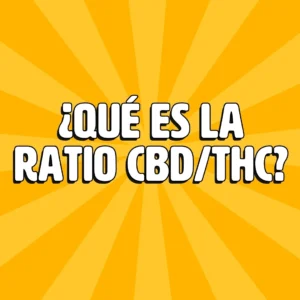Endometriosis is a painful condition that affects millions of women worldwide. Despite the treatments available, many women continue to look for more natural and less invasive alternatives to manage their symptoms. Cannabidiol (CBD) has emerged as a promising option due to its anti-inflammatory and analgesic properties. In this blog post, we’ll explore how CBD could help women suffering from endometriosis and answer some frequently asked questions about its use.
What is Endometriosis?
Endometriosis is a condition in which tissue similar to the lining of the uterus grows outside of it, causing pain, inflammation, and often fertility problems. This tissue, known as endometrial tissue, can be found in the ovaries, fallopian tubes, and other areas within the pelvis. Symptoms include severe pelvic pain, severe menstrual cramps, pain during sex, and digestive problems.
Symptoms of Endometriosis
Endometriosis can manifest itself in different ways, and the severity of symptoms varies from person to person. Some of the most common symptoms associated with this condition are described below:
Pelvic pain
Pelvic pain is one of the most common and debilitating symptoms of endometriosis. This pain is often associated with the menstrual cycle, but it can also occur at any time of the month. It can be constant or intermittent, and its intensity can range from mild to severe.
Severe menstrual cramps
Women with endometriosis often experience menstrual cramps that are much more intense and prolonged than usual. These cramps may start before the start of your period and continue for several days.
Pain During Sex
Pain during or after sex is a common symptom in women with endometriosis. This pain can be sharp and localized or a deep and persistent pain, which can negatively affect sexual and emotional life.
Heavy or Irregular Menstrual Bleeding
Endometriosis can cause very heavy menstrual periods or bleeding between periods. Some women may also experience bleeding longer than normal.
Pain when defecating or urinating
Pain during bowel movements or when urinating is another common symptom, especially during the menstrual period. This can be caused by the presence of endometrial tissue in the bowel or bladder.
Other Symptoms
Some women may also experience additional symptoms, such as:
- Fatigue: Constant feeling of tiredness and lack of energy.
- Digestive Problems: They include bloating, diarrhea, constipation, and nausea, especially during the menstrual period.
- Back Pain: Pain in the lower back, which may radiate down the legs.
Variability of Symptoms
Importantly, the severity of symptoms does not always correspond with the extent of endometriosis. Some women with extensive endometriosis may have few or no symptoms, while others with mild endometriosis may experience severe symptoms. Recognizing and understanding these symptoms is crucial for the early diagnosis and effective treatment of endometriosis. If you experience any of these symptoms, it is critical to consult a healthcare professional for proper evaluation and development of a treatment plan.
Potential Benefits of CBD for Endometriosis
Anti-inflammatory properties
CBD could have anti-inflammatory properties, which may be beneficial in reducing inflammation associated with endometriosis. A study published in the Journal of Pain Research found that CBD can reduce inflammation by interacting with receptors in the body’s endocannabinoid system (Mlost, J. et al., 2020).
Pain Relief
Pain is one of the most debilitating symptoms of endometriosis. CBD could help relieve pain by modulating the activity of pain receptors in the brain. An animal study showed that CBD has significant analgesic effects, suggesting its potential to manage chronic pain (Vuckovic, S. et al., 2018).
Reduced Digestive Symptoms
Many women with endometriosis experience digestive symptoms such as bloating, diarrhea, and constipation. CBD could help regulate bowel function and reduce these symptoms. One study reviewed the effect of CBD on gastrointestinal disorders and found that it could be useful in regulating gut motility (Storr, M. et al., 2014).
Improved Sleep
Chronic pain and discomfort can affect sleep quality. CBD appears to have positive effects in improving sleep quality, which may be beneficial for women with endometriosis who have difficulty sleeping due to pain (Babson, K. A. et al., 2017).
Relationship of Endometriosis with the Endocannabinoid System
The endocannabinoid system (ECS) is a complex network of receptors, enzymes, and endocannabinoids that play a crucial role in regulating various physiological functions, including pain, inflammation, mood, and fertility. Recently, it has been suggested that this system could be involved in the pathogenesis of endometriosis and the modulation of its symptoms. Below, we explore how the endocannabinoid system is related to endometriosis.
Functioning of the Endocannabinoid System
The ECS is primarily made up of two types of receptors: CB1 and CB2. These receptors are found throughout the body, including the central nervous system, immune system, and reproductive organs. Endocannabinoids, such as anandamide and 2-arachidonoylglycerol (2-AG), are molecules that bind to these receptors to exert their biological effects.
Endocannabinoid System Dysfunction in Endometriosis
Several studies have indicated that women with endometriosis may have alterations in the functioning of their endocannabinoid system. For example, anandamide levels have been observed to be significantly lower in the endometrial tissue of women with endometriosis compared to those without the condition. This dysfunction can contribute to inflammation and chronic pain associated with endometriosis (Gasperi, V. et al., 2014).
CBD’s Role in ECS Modulation
Cannabidiol (CBD) is a phytocannabinoid that does not bind directly to CB1 and CB2 receptors, but it can influence the endocannabinoid system in a number of ways. CBD inhibits the degradation of anandamide, increasing its levels in the body and enhancing its anti-inflammatory and analgesic effects (Bisogno, T. et al., 2001).
Preclinical and Clinical Studies
Preclinical research has shown that modulation of the endocannabinoid system can reduce inflammation and pain in animal models of endometriosis. Although human clinical studies are limited, initial results are promising and suggest that CBD and other cannabinoids could be useful in managing endometriosis symptoms.
Ways to Use CBD for Endometriosis
There are several ways to use CBD to help manage the symptoms of endometriosis. CBD oils are a common method for overall wellness. We remind you that in Spain CBD products are for topical use. For localized pain relief, CBD creams and balms can be applied directly to the affected areas of the abdomen and pelvis. It’s important to choose the form of administration that best suits your needs and consult with a doctor to determine the appropriate dosage.
Frequently Asked Questions about CBD and Endometriosis
Is it safe to use CBD for endometriosis?
CBD is generally considered safe for most people. However, it’s important to talk to a doctor before starting any new treatment, especially if you’re taking other medications.
Can I use CBD in conjunction with other treatments for endometriosis?
Yes, many women use CBD in conjunction with other traditional endometriosis treatments. However, it is crucial to consult a doctor to ensure that there are no adverse interactions with other medications.
Does CBD cure endometriosis?
CBD does not cure endometriosis, but it can help manage symptoms associated with the condition, such as pain and inflammation.
Where can I buy quality CBD products?
It is important to buy high-quality CBD products from trusted brands. Look for products that have been tested by other women you know and have lab work to ensure their purity and potency.
Bibliography and Sources
- Mlost, J., Bryk, M., & Starowicz, K. (2020). “Cannabidiol for pain treatment: Focus on pharmacology and mechanism of action.” International Journal of Molecular Sciences, 21(22), 8870. https://pubmed.ncbi.nlm.nih.gov/33238607/
- Vuckovic, S., Srebro, D., Vujovic, K. S., Vucetic, C., & Prostran, M. (2018). “Cannabinoids and pain: New insights from old molecules.” Frontiers in Pharmacology. https://pubmed.ncbi.nlm.nih.gov/30542280/
- Storr, M., Devlin, S., Kaplan, G. G., Panaccione, R., & Andrews, C. N. (2014). “Cannabis derivatives for inflammatory bowel disease management.” Current Gastroenterology Reports, 16(8), 378. https://karger.com/mca/article/4/2/97/820118/Cannabis-and-Cannabis-Derivatives-for-Abdominal#:~:text=Cannabis%20and%20its%20derivatives%20have,such%20as%20diarrhea%20and%20nausea.
- Babson, K. A., Sottile, J., & Morabito, D. (2017). “Cannabis, cannabinoids, and sleep: A review of the literature.” Current Psychiatry Reports, 19(4), 23. https://pubmed.ncbi.nlm.nih.gov/28349316/
SOUTHERN PHARMA SPAIN S.L will not assume any liability arising from the use by third parties of the content of the website and may exercise all civil or criminal actions that correspond to it in the event of infringement of these rights by the user. It is absolutely forbidden to use the website or any of its elements for illicit purposes. The benefits and properties of cbd that could be read on the website www.gorillagrillz.com are in no way attributed to the products sold on the website. CBD products are not medicines and should not replace treatments with them. What you can read on our website are not official medical claims but references to preclinical studies. If you have any questions, you can consult with a professional health personnel. We remind you that in Spain CBD products are for topical use. All products have THC<0.2% analyses in accordance with Royal Decree 1729/1999.













